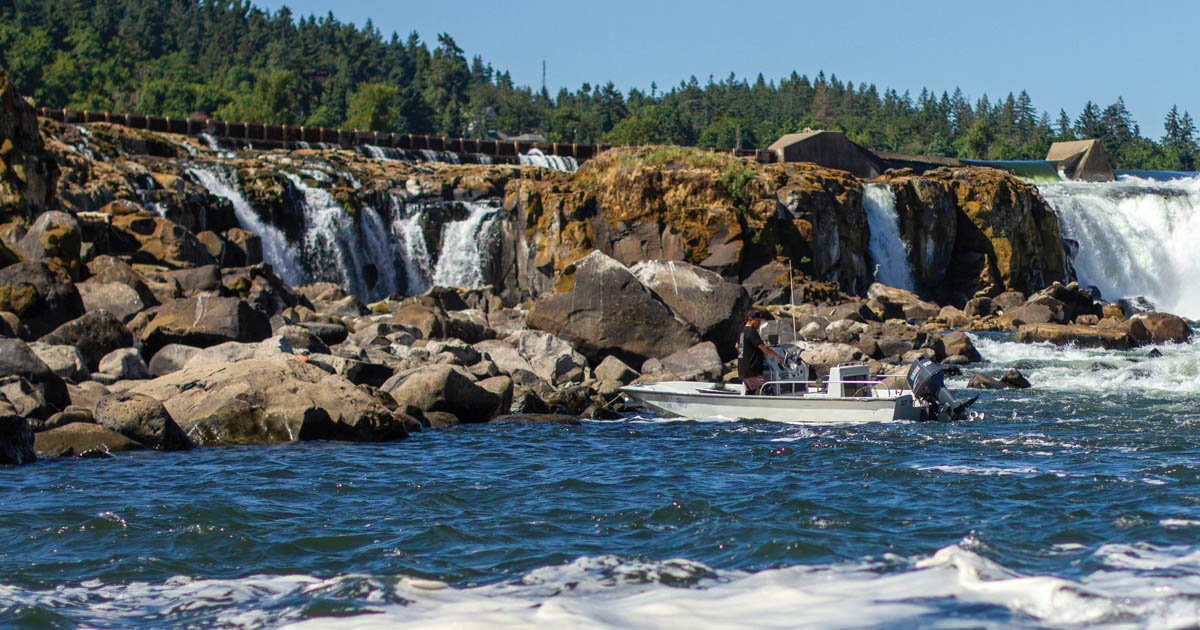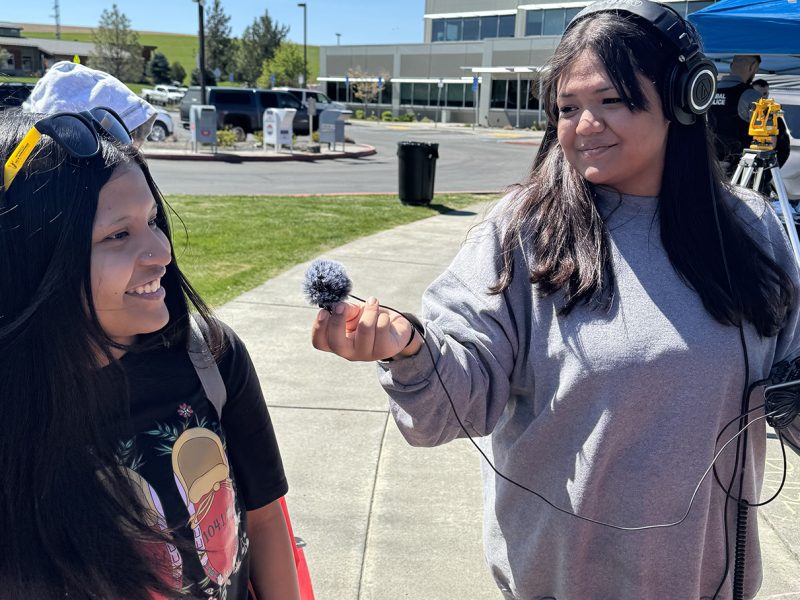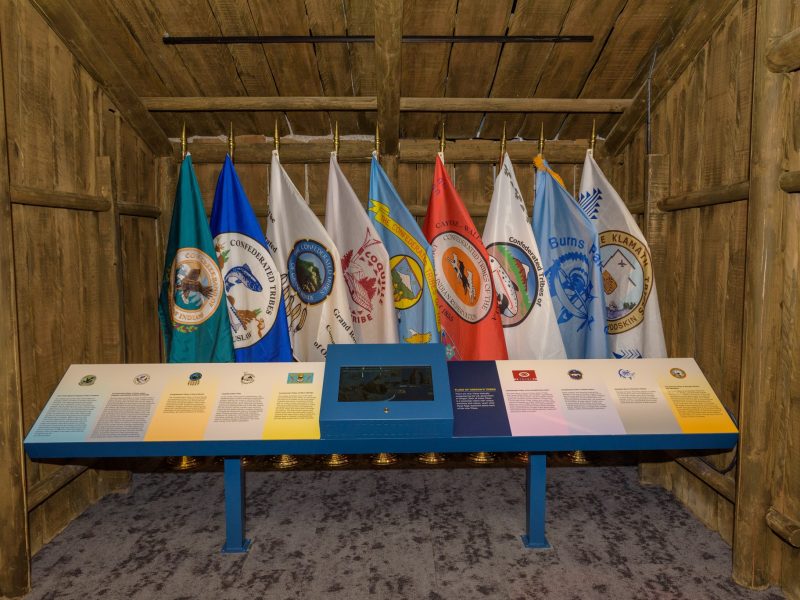Nine months after Oregon passed a historic agreement with the Confederated Tribes of Grand Ronde, the Confederated Tribes of Warm Springs filed a petition to repeal the agreement, saying the state didn’t consult them about an agreement that threatens their treaty rights.
BY NIKA BARTOO-SMITH, Underscore News + ICT
The Confederated Tribes of Warm Springs asked the Oregon Department of Fish and Wildlife to repeal a state agreement with the Confederated Tribes of Grand Ronde.
In August, the Oregon Department of Wildlife approved an agreement affirming the right of the Confederated Tribes of Grand Ronde to issue hunting and fishing licenses to its citizens. Other Native nations in Oregon, Washington and Idaho strongly opposed the agreement’s inclusion of Willamette Falls.
“Our people have always fished and hunted in Western Oregon beyond our ceded lands,” said Robert A. Brunoe, secretary treasurer and CEO of the Confederated Tribes of Warm Springs, in a press release. “Willamette Falls is a particularly important fishery for us. Why would the State want to privilege one Tribe’s rights to fish and hunt in this area over another and issue a decision that conflicts with existing rights and sovereignty?”
Warm Springs claims in its petition that the agreement creates conflict with its treaty rights, specifically by ignoring the cultural connection to Willamette Falls. The tribe is worried it conflicts with tribal sovereignty.
As the Oregon Department of Fish and Wildlife considered the agreement in 2023, Native nations, including Warm Springs, gave both written and oral testimony expressing concerns with both the geographic scope of the agreement, which they said was overly broad, and with the state’s lack of consultation about the agreement’s effect on their treaty rights.
In a meeting of the ODFW Commission in June 2023, the Confederated Tribes of Siletz Indians and the Lower Umpqua and Siuslaw Indians joined the Cow Creek Band of the Umpqua Tribe of Indians and the Coquille Indian Tribe in entering into similar historic agreements with the state. The agreement with Grand Ronde was also on the agenda for that meeting, but the commission delayed its decision until August 2023 due to objections from other tribes, including Warm Springs.
Prior to the commission adopting its agreement with Grand Ronde, Warms Springs Chairman Jonathan W. Smith sent a letter to the commission on July 27, urging it not to approve the agreement with Grand Ronde “to avoid triggering possible federal litigation.”
Nine months later, the May 7 petition from Warm Springs urged ODFW to repeal the agreement.
Grand Ronde leaders maintain that their memorandum of agreement (MOA) with the state does not impact other tribes’ treaty rights.
“In contrast to what the Warm Springs Tribe claims, our MOA with the state, which came after an open, public process, does not create a conflict with the treaties of any Tribes, nor does it ignore any other Tribe’s cultural connections to any ancestral lands or create exclusive rights for Grand Ronde,” Grand Ronde Chairwoman Cheryle Kennedy said in response to the Warm Springs petition. “In fact, our MOA is nearly identical to agreements other Western Oregon Tribes have with the state. We were the last Tribe in Western Oregon to get an MOA with the Oregon Department of Fish and Wildlife; four others had already gone through the process and had been approved.”
According to the petition from Warm Springs, the geographic scope of the state’s agreement with Grand Ronde is larger than the scope of any of the state’s agreements with other tribes.
The primary issue relates to the inclusion of the Willamette Falls.
Kennedy disputes that, pointing to language in the agreement that specifically “excludes state-owned land at Willamette Falls.”
In addition to state-owned land at Willamette Falls, PGE owns land there. Grand Ronde also owns land at the falls.
The Warm Springs petition points to the tribe’s usual and accustomed treaty rights to fish on locations along the Columbia River and its tributaries, which include the Willamette River and the Sandy River. “The Willamette Falls is a particularly important treaty-reserved fishery,” the petition says.
Warm Springs further states in the petition that Grand Ronde “does not have any federal treaty-reserved rights to fish or hunt outside of its reservation.”
Since the commission adopted the agreement in August, over Grand Ronde has issued harvest licenses to over 400 of its members under the agreement, according to Kennedy.
According to Warm Springs, the main problems with the agreement stem from ODFW’s failure to undergo meaningful consultation with the four Columbia River treaty tribes — Warm Springs, the Confederated Tribes of the Umatilla Indian Reservation, Yakama Nation and the Nez Perce Tribe — and the vote to approve the agreement passed with a ‘yes’ vote from two commissioners whose terms had already expired. Commission Chair Mary Wahl’s term expired on May 14, 2023; and Commissioner Mark Labhart’s term expired June 30, 2023.
“We’re giving the State an opportunity to fix its mistake, and to advance an agreement that can respect the sovereignty of all tribes affected,” Brunoe said. “ODFW should initiate a new rule-making process and appropriately consult with all impacted tribes to adequately hear, understand and respect our concerns.”



